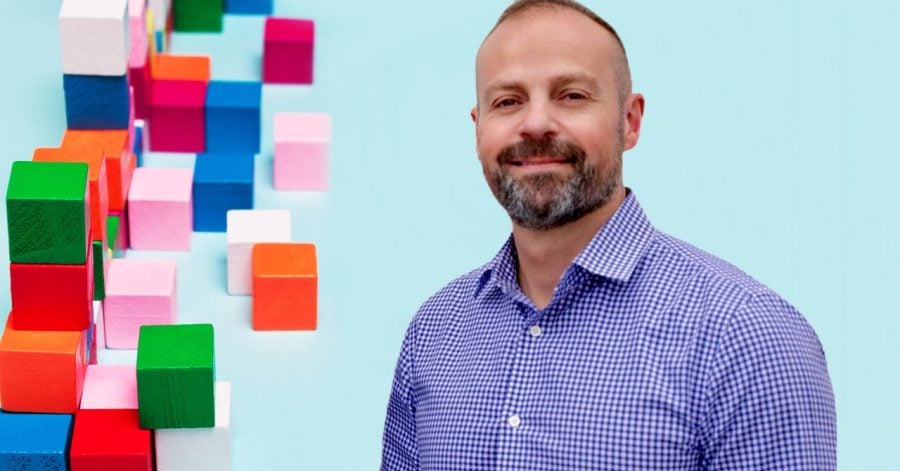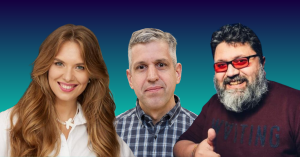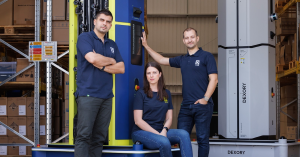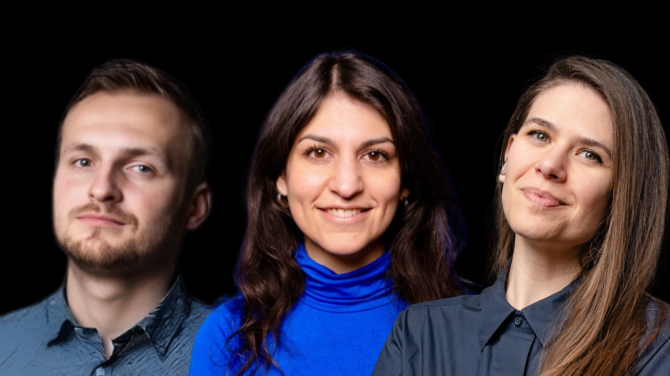When Ivan Dimov – a former Director at Lazard (Australia) and CFO at Edamam LLC (New York), and one of the founders of the Bulgarian Innovation Hub – worked as a top-quality financist around the world, the job required his dedication and high-level responsibility. However, this became a real challenge when his inner world remained unseen, rather shattered.
Building the element of tolerance and acceptance of diversity at work is necessary at all times, especially if employers want to contribute to the transformation of global society into a unified community of creators, of change makers. As the pride month of June has passed by – but urgent matters to address still remain, we raise awareness of the hardships the LGBTI community is left to overcome and the opportunities that exist for them to prosper.
The Recursive met with Ivan to talk about the Single Step Foundation – a Sofia-based organization that he founded 4 years ago to support the integration, as well as the professional and personal development of the LGBTI community in the country.
In this interview, Ivan highlighted:
- The existentiality of building inclusive work environments;
- And the challenges that LGBTI founders currently face in the slowly-evolving but progressively open for change career climate in Southeast Europe.
The Recursive: You have an outstanding experience in the financial sector worldwide, what motivated you to come back to Bulgaria and establish Single Step Foundation? Can you tell us more about its mission?
Ivan Dimov: It was an actual encounter, which was really the catalyst that made me move back to Bulgaria and establish the foundation. I was back here on vacation and at an event, I met a young man who had just graduated from high school. He shared with me that he had told his mom that he was gay, and she had taken him to a psychiatrist – to be cured of his “disease”. And that “professional” told him: “Don’t worry, I can cure you”.
So the kid ran away from home and tried to commit suicide. This really affected me. I asked around what support resources were available in the country to help young people in such a situation. Because if you turn to your closest ones and the result is a suicide attempt, obviously, something is broken. It turned out that at that time, there were no such resources. I went back to New York where I lived but I kept thinking about what I could do to help young people from the community.
Eventually, I decided it was time to change career paths and do something that I really cared about. So that’s how the Single Step foundation was born. Its mission from the very beginning was to provide comprehensive support resources to the LGBTI community in Bulgaria.
We have an online chat, support groups for LGBTI youth and their parents, a network of psychologists in 9 cities around the country. We also have a sexual health program and a career center as we want to help young people from the community who want to start their career in the corporate world. We provide them with practical advice on how to behave at interviews, what employers are more LGBT-friendly, and so forth.
One of our first priorities from the very beginning was establishing a physical space or a community center. That idea evolved; at the time I had no experience in the non-profit world, my professional experience was in investment banking and VC and to me, it was absolutely essential to have a business model that was sustainable, channels to finance our initiatives that didn’t depend on grants and programs but on us.
So that’s how this space here (Ed note, The Steps) was born as a social enterprise. It’s a for profit business, but it’s 100% owned by the Foundation. So all profits from that business are reinvested in the foundation, which actually turned out to be quite a unique model especially in the LGBTI NGO space.
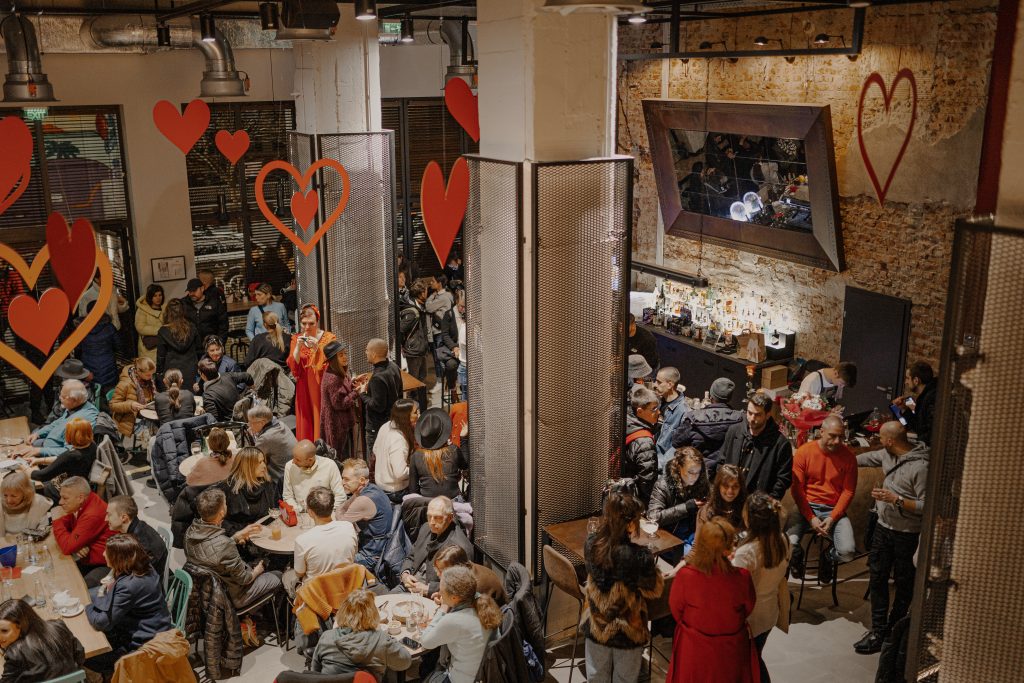
What are the biggest challenges you have faced in your role as an LGBTI founder? How did those affect your life path or career?
I started working many years ago in finance, which was very, very different from what the corporate world right now is. I was not out at work, because I was really hesitant and even afraid of how people would judge me as a professional, even in a place like New York. So that really affected my performance. I couldn’t be myself at work, couldn’t introduce my partner to anyone nor be open about who I am. I grew up in communist Bulgaria and I left for the US in the early 90s. I went there to study and then started working on Wall Street. So it wasn’t even a topic to be discussed.
But I do remember those first years in a very conservative, homogeneous corporate environment – not just for LGBTI people, but for women, or minorities, too. For example, there were only a few female or black partners at the bank. Obviously, there’s been significant positive change in that aspect in Western Europe and the US, but it did take me a while to first come out to myself.
At some point, I literally said to myself: you know what, I am who I am and it just makes no sense to continue not being myself. It was just a natural progression – I started bringing my partner to events and started telling people that it’s actually not okay when they’re making certain jokes or comments. So, that was probably the biggest challenge that anyone on that path to coming out has to overcome – the internal barrier.
What policy changes on a national and European level would improve the professional perspectives for LGBT+ people in Bulgaria?
I don’t think that it’s only a matter of legislation actually. There’s a lot of inequality for LGBTI people as citizens of Bulgaria – for example, lack of recognized domestic partnerships or the right to adopt children. I’m not even speaking about marriage equality because who knows when that will happen here and in the region. In a country like Bulgaria, there is very little to no political support for the LGBTI community.
I actually think that corporations and specifically the startup ecosystem can make a huge difference. I say that, because we live in an environment where there’s a huge demand and competition for talent. And the goal to attract, retain, and engage that talent is actually a priority for most companies right now. And it’s really as simple as that: if a company creates a culture that is inclusive and accepting, that values talent and the individual with all of their characteristics – then that employee feels appreciated and fulfilled, therefore more productive, which translates immediately to the bottom line. And there lies the responsibility of each founder, to create such a culture of acceptance.
In the corporate world, most multinationals in Bulgaria have very strict guidelines and policies of non-discrimination, which is a great start. Some companies here even offer domestic partner benefits, even though they are not formally legislated on a national level. These are great precedents which should be adopted more widely. Since there is no political leadership for advancement of LGBTI rights and acceptance, then business leaders, founders, the startup ecosystem, have the unique chance to lead in that aspect.
What good practices can we learn from companies in Western Europe, which are already implementing this aspect?
There is a Corporate Equality Index, published by the Human Rights Campaign Foundation. The survey ranks hundreds of the largest world corporations based on various criteria such as non-discrimination policies in the workplace based on sexual orientation and gender identity, domestic partner benefits, trans-inclusive benefits and public commitment to the LGBTI community, etc. For example, when this index was launched 20 years ago, there were zero companies that provided benefits for trans people in the workplace.
Now, it’s a huge majority of those companies that do so. I understand that these concepts may still be foreign for a lot of companies in Bulgaria but on the other hand, it is very encouraging to see a growing number of corporations, which publicly support Pride and our community.
Can you give examples of companies (or startups) in our region that work towards the protection of the rights and well-being of the LGBTI community?
Most multinationals in the country, have specific sexual orientation non-discrimination policies and Diversity & Inclusion initiatives. Some, such as VMware, for example, provide certain benefits to domestic partners – regardless of their sex. I really hope that these best practices are replicated in larger and smaller Bulgarian companies, as well.
To give you an example of how much work there is still to be done in the country in that aspect: according to a 2019 Eurobarometer study, 49% of the respondents would feel uncomfortable if one of their colleagues they have daily interactions with was LGBT, ranking Bulgaria last in the EU in terms of acceptance in the workplace.
The real change in people’s attitude towards their LGBTI colleagues comes on a more personal level, however, not only through corporate guidelines and policies. I have been invited to speak at numerous company events about my experience of being gay in the corporate world, about Single Step and about the challenges facing my community in Bulgaria, etc. And usually these events turn into a great discussion, with no taboo questions. Yes, there are some prejudices and preconceived opinions, but this personal dialog is the basis for understanding and acceptance and some people do leave with changed attitudes.
In conclusion, a personal invitation to all of your readers: if you would like to host such an internal discussion at your company, I will be more than happy to join you, so feel free to reach out to me.

